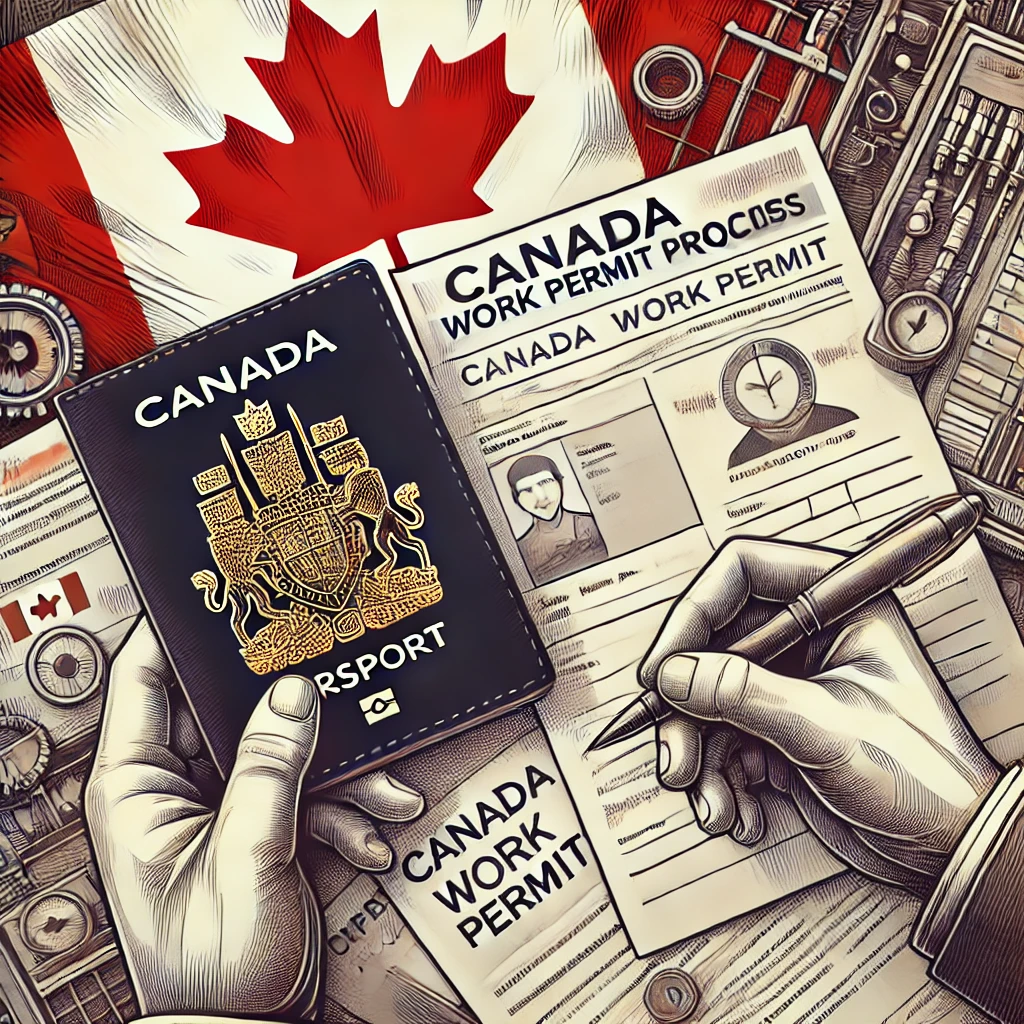Your Comprehensive Guide to the Canada Work Permit Process: Everything You Need to Know
Canada has become one of the most sought-after destinations for skilled professionals, entrepreneurs, and job seekers worldwide. Its booming economy, high quality of life, and inclusive immigration policies make it an attractive choice for those looking to work abroad. If you’re considering working in Canada, understanding the work permit process is the first step.
In this guide, we’ll break down the Canada Work Permit process into simple, user-friendly steps and provide helpful links to make your journey smoother.
What is a Canada Work Permit?
A Canada Work Permit is an official document issued by Immigration, Refugees, and Citizenship Canada (IRCC) that allows foreign nationals to work in the country legally. While some jobs do not require a work permit, most positions do.
Types of Canada Work Permits
There are two main types of work permits:
- Employer-Specific Work Permit
- Allows you to work for a specific employer in Canada.
- Includes details like the employer’s name, job location, and the duration of the job.
- Open Work Permit
- Provides flexibility by allowing you to work for almost any employer in Canada.
- Commonly granted under programs like the Post-Graduation Work Permit (PGWP) or for spouses of skilled workers and international students.
For more details, visit the Government of Canada’s Work Permit Types Page.
Eligibility for a Work Permit
General Requirements
To be eligible for a Canada Work Permit, you must:
- Prove that you will leave Canada when your permit expires.
- Show that you have enough funds to support yourself and your family in Canada.
- Provide a clean police clearance certificate.
- Undergo a medical examination if required.
Program-Specific Requirements
Some work permits, like the Global Talent Stream, have additional eligibility criteria based on job offers, employer requirements, or specific skills.
Step-by-Step Guide to Apply for a Canada Work Permit
1. Get a Job Offer (If Required)
Before applying, ensure you have a valid job offer from a Canadian employer. Most employer-specific work permits require a Labour Market Impact Assessment (LMIA), a document proving that the employer couldn’t find a suitable Canadian for the role.
Helpful Link: Learn About LMIA Requirements
2. Determine the Type of Work Permit
Check whether your job falls under employer-specific or open work permits. Some jobs, like intra-company transfers or specific agreements like NAFTA/USMCA, have unique conditions.
3. Gather Required Documents
You will typically need:
- A valid passport.
- Job offer letter.
- LMIA (if applicable).
- Proof of qualifications (e.g., educational certificates, resume).
- Proof of financial stability.
- Medical exam results (if required).
4. Apply Online or Through a Visa Application Centre (VAC)
Submit your application via the IRCC website or at a VAC in your home country.
5. Pay the Fees
The application fee is CAD 155 for most work permits. Open work permits may incur an additional CAD 100.
6. Wait for Approval
Processing times vary depending on your country of residence and the type of work permit. Check current wait times here.
7. Receive Your Work Permit
Once approved, you’ll receive a Port of Entry (POE) Letter. Present this to Canadian immigration officials upon arrival to obtain your work permit.

Special Pathways to Work in Canada
Global Talent Stream
Designed for highly skilled professionals in technology and other in-demand sectors, this stream offers expedited processing.
Learn more: Global Talent Stream Overview
Post-Graduation Work Permit (PGWP)
Available to international students who graduate from eligible Canadian institutions, the PGWP allows them to work in Canada for up to three years.
Learn more: PGWP Information
International Mobility Program (IMP)
This program includes work permits exempt from the LMIA process, focusing on reciprocal agreements, cultural benefits, or international interests.
Learn more: International Mobility Program Details
Tips for a Successful Work Permit Application
- Start Early
Processing times can vary. Apply as soon as you have your job offer and required documents. - Double-Check Documents
Incomplete or inaccurate documents can delay your application. Ensure all forms are filled out correctly. - Stay Updated
Immigration policies can change. Keep track of the latest requirements on the IRCC website. - Seek Professional Advice
If you’re unsure about your eligibility or the process, consider consulting a licensed immigration consultant or lawyer.
Benefits of Working in Canada
- High Wages and Benefits
Canadian jobs offer competitive salaries, healthcare benefits, and opportunities for growth. - Cultural Diversity
Working in Canada means being part of a multicultural society that values inclusion and respect. - Pathway to Permanent Residency
Many work permits can lead to permanent residency through programs like the Canadian Experience Class (CEC). - Quality of Life
Canada offers a safe, high-quality lifestyle with excellent healthcare, education, and recreational opportunities.
Common FAQs About Canada Work Permits
1. How long does it take to get a work permit?
Processing times vary based on location and permit type. Check the latest times here.
2. Can I bring my family to Canada?
Yes, in most cases, your spouse and children can accompany you. Your spouse may even be eligible for an open work permit.
3. Can I change employers while on a work permit?
If you hold an employer-specific work permit, you must apply for a new permit to change employers. Open work permits allow flexibility.
4. Do I need a work permit for every job in Canada?
No. Some jobs, like performing artists or emergency service providers, may not require a permit.
Conclusion
The Canada Work Permit process can seem complex, but with proper planning and guidance, it’s a manageable and rewarding journey. Whether you’re a skilled professional, a recent graduate, or someone looking for new opportunities, working in Canada opens doors to endless possibilities.
Ready to take the first step? Explore the application process on the IRCC website and start your journey today!





